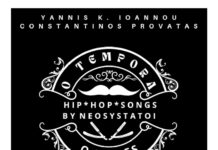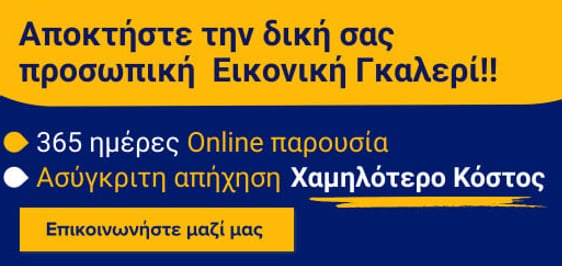Επιμέλεια: Εύα Πετροπούλου Λιανού
Tasneem Hossain is a multilingual poet, columnist, op-ed and fiction writer, translator and training consultant. She is the Director of Continuing Education Centre, Bangladesh.
Bio: Tasneem Hossain is a multi-lingual poet from Bangladesh. She is also a fiction and op-ed writer,
translator and trainer.
Publications: Poetry: The Pearl Necklace, Floating Feathers and Grass in Green (published in
USA). Article: Split and Splice.
More than 75 of her literary writings have been published in different magazines and dailies in the USA, Canada, UK, Singapore, China, Greece, Indonesia and Bangladesh. She has written about 65+ op-eds in a span of 2.5 years.
She runs a project named Life in lyrics, which is a literary network with no borders.
As a trainer, she has imparted training to more than 26,000 staff of different organisations .
She completed her Masters in English Language and Literature from Dhaka University and has
been a faculty in CUET, Bangladesh. She also worked in Radio Bangladesh for 10 years.
This article deals with the use of different internet terms used nowadays and how these are replaced from time to time with generation change.
IJBOL! WDYM?
I was invited to a party to celebrate my daughter’s graduation. Her friends brought a cake with a writing which said SM= G-O-A-T. SM is her initials but I tried to decipher what G-O-A-T stood for – “G for graduate? O for…? A for achieve? T for…? …” Seeing my unmindful and quizzical face, her friends replied with a grin, ‘Oh! Aunty! Greatest Of All Time (G.O.A.T)’.
ijbol…..(I Just Burst Out Laughing).
Considered as one of the best footballers of all times, Lionel Messi, is now frequently referred to as G.O.A.T by his fans.
Four days later, on 24 October, the article ‘IJBOL Is In. LOL Is Out.’ published in The New York Times caught my attention.
IJBOL – this new acronym is one of the many ways internet users are conveying amusement in the absence of face to face communication, leaving some users confused. Some users have speculated that it might be a Korean word or some other language. Others have assumed the acronym as a cute name for a Korean pop group.
Yes, it’s the latest popular term which has replaced LOL (Laugh Out Loud), LMAO (Laugh My A**Out) and ROFL (Rolling On the Floor Laughing). The origin of IJBOL is thought to date back to 2009, when an Urban Dictionary user originally posted the definition. At that time it didn’t get much attention but it became popular when enthusiastic followers in the K-pop community started using it, while posting videos of their idols, in 2021. This further popularised the term in Twitter culture and started circulating across the world. Most popularly it’s used, while sharing a funny video or meme online, to express that it made you burst out into laughter. Over the past couple of years, more and more people have adopted it and started using it regularly.
As an acronym, it’s spelled out each ‘eej-bol’.
Capitalizing LOL indicates stronger laughter, while adding a lowercase “lol” conveys less humourous. Just like that some may think that capitalizing IJBOL conveys a stronger reaction. On the contrary, if you really want to fit in with Gen-Z population, writing “ijbol” in lowercase letters is the norm. Capital letters may be necessary for IJBOL when you’re expressing something that is funny and also shocking.
Following are some examples how you can use this term:
If you’re posting a meme or a funny video, you can write ‘ijbol’ as caption.
If your favorite celeb does something ridiculous, like forgetting the lines on stage during one of the performances, you could caption it with ‘IJBOL POOR ….’
Though, ijbol is mostly used on social media you can easily use the term in text conversations as well (do remember it’s only for personal use and should not be used in the work place).
People have mixed reactions after learning its usage. Some internet users have admitted that they don’t know what it means and they are even afraid to ask because of being ridiculed at their ignorance.
The new Gen Z slang terms are taking over LOL and ROFL, leaving those of us who are less young confused to find the meanings of those terms.
My piece of advice is with so many options for how to express your laughter online, you can really pick and choose what works best for the conversation with that particular person or group. If you’re texting the Baby Boomer Generation, Generation X or Millennial friends then you can send your ‘face with tears of joy’ emoji or LOL without caring about what the Gen-Z crowd thinks. After all, it’s your own world.
At the same time, to stay relevant on the internet with the acronyms and internet terms on a social media platform, it’s better to be updated. Here is a list of commonly used slang acronyms you need to know:
A word of caution though: some of these slang terms could be categorized as ‘NSFW’ (Not Suitable For Work), so use these with caution.
• AFAIK: As Far As I Know
• ASL: Age/Sex/Location
• BRB: Be Right Back
• BTW: By The Way (very common)
• CBTM: Could Be The Move (used when a specific practice would work well in a certain situation to make the person look cooler, more interesting or efficient)
• DM: Direct Message
• DP: Display Picture (Profile Picture)
• DW: Don’t Worry
• FOMO: Fear Of Missing Out
• FTW: For The Win (to express approval or support something; to express enthusiasm about an achievement)
• FWB: Friends With Benefits
• FWIW: For What It’s Worth (used to add information to your message or to inform someone of something that may or may not be useful. E.g.: The game was terrible. But FWIW the captain played awesome. FWIW can sometimes be interchangeable with FYI (For Your Information).
• GL: Good Luck
• GOAT: Greatest Of All Time
• GRWM: Get Ready With Me (a popular social media hashtag and trend that involves posting a video or series of photos showing the process of getting ready for an event or activity)
• GTG: Got To Go
• HBU: How About You?
• HMU: Hit Me Up ( slang to tell someone to call, text or contact; or to request or invite)
• HU: Hook Up (meet or form a relationship between two people)
• ICYMI: In Case You Missed It
• IDC: I Don’t Care (LOL the term itself indicates that you don’t care )
• IDK: I Don’t Know
• IKR: I Know, Right? (shows strong agreement used in texting and chat)
• ILY: I Love You (in my opinion, if you truly love someone, this ILY says the opposite. If the person loves someone, how can one not even have time enough to say I Love You? IJBOL)
• IMHO: In My Humble Opinion.
• IMO: In My Opinion
• ISO: In Search Of
• IYKYK: If You Know, You Know ( used after a statement as a way of indicating that it is an inside joke or a reference to something only a select group of people know and understand)
• JK: Just Kidding
• MBN: Must Be Nice
• MYOB: Mind Your Own Business
• NBD: No Big Deal
• NGL: Not Gonna Lie
• NP: No Problem
• NSFW: Not Suitable For Work
• NVM: Never Mind
• OFC: Of Course
• OMG: Oh My God
• OMW: On My Way
• OOMF: One Of My Friends (refers to a follower or a friend). Oomfie is a flirtatious way of saying oomf and usually refers to someone you really like or who’s attractive. Similarly, ‘croomf’ = crush + oomf means a follower or friend you have crush on.
• RIP: Rest in Peace (I really feel this acronym lacks real sympathy and emotion and shouldn’t be used because we must show some respect and take time to show our compassion for the person who has passed away)
• RN: Right Now
• SMH: Shaking My Head ( conveys disappointment, disapproval, frustration, or impatience)
• TBH: To Be Honest
• TFW: That Feeling When ( typically used with an image, video or GIF when the facial expression or activity shown matches how someone is feeling like posted with a video of yourself dancing in your room: TFW you remember you are going on a holiday.
There’s not a huge difference between the two acronyms: TFW and MFW (My Face When)
• TIL: Today I Learned
• TL,DR: Too Long, Didn’t Read( used to convey that it would be nice to have a very condensed summary of the content. It might sound rude but depends on the manner it’s used) BLUF: Just like BLUF (Bottom Line Up Front) is a military term to put the most important details first because people are busy and time is valuable; or Get to the point.
• TN: Tonight
• TY: Thank You (ijbol)
• WBU: What About You?
• WDYM: What Do You Mean?
• WTM: What’s the move? (used like: What’s the plan? )
It can also mean ‘What’s The Matter’ or ‘Whatever That Means.’
• WYA: Where You At? (Where are you? )
• WYD: What You Doing?
• WYLL: What You Look Like? (What do you look like? Sometimes, people meet through social media and if that person does not have a picture, it’s common to ask what they look like, so they have an idea if they meet in person)
• YOLO: You Only Live Once
Almost every other day, the younger generation comes up with new phrases to use and we need to update ourselves to remain in trend.
Who knows, how long it will take for IJBOL to be replaced by another term with Generation Alpha coming up. Until then, let’s keep our brains working. After all, the more the brain works the sharper the memory.
References:
1. Wang, Shirley, What Is IJBOL?, The New York Times, August 8, 2023.
2. Caldwell, Sophie, Is ‘IJBOL’ the new ‘LOL’? IDK!, Today, August 18, 2023

































